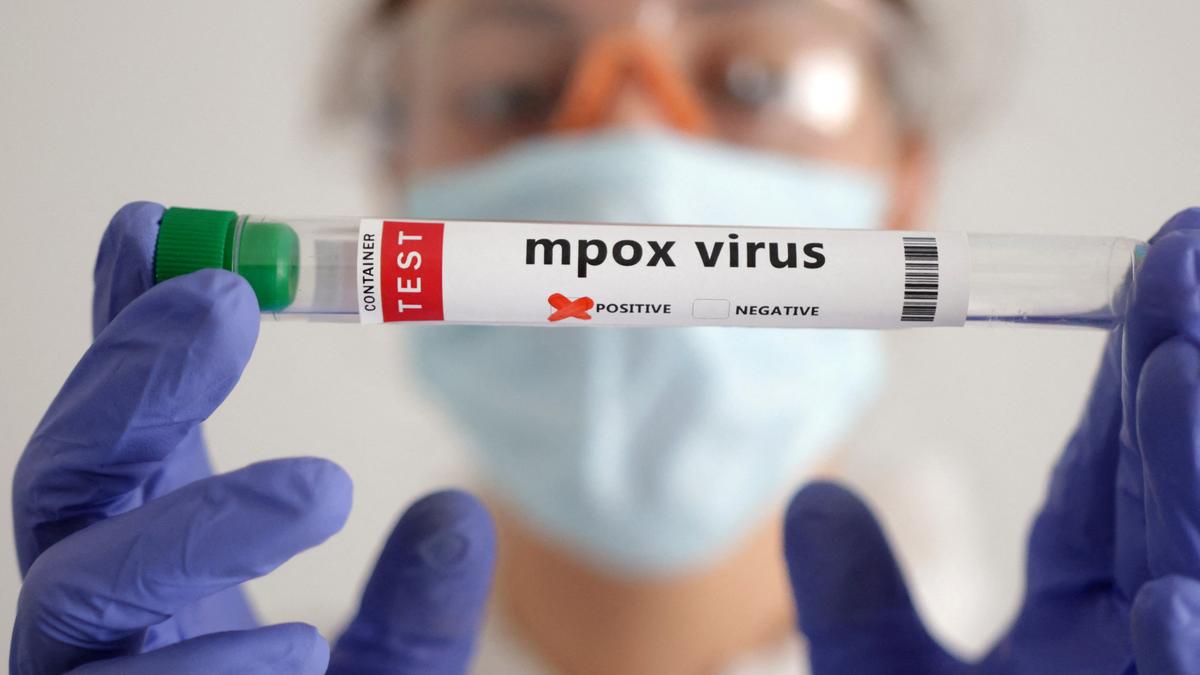Pakistan's First Mpox Case of 2025: A Wake-Up Call?
In a startling development, Pakistan has confirmed its first Mpox case of 2025. This isn't just another headline; it's a potential health crisis that demands immediate attention. Detected during routine screening at Peshawar's Bacha Khan International Airport, the case underscores the persistent threat of this viral disease. The affected individual, a 35-year-old traveler arriving from Dubai, is currently receiving treatment, sparking concerns about potential community spread. Is this an isolated incident, or a sign of a larger, brewing outbreak?
How Was the Case Discovered?
The swift identification of the Mpox case is a testament to Pakistan's heightened border surveillance. Health officials, utilizing rigorous screening protocols at airports, promptly identified the individual displaying symptoms consistent with Mpox. This emphasizes the significance of vigilant monitoring at entry points. The rapid response to the case showcases the commitment of both the federal and provincial health authorities to preventing further infections. The case's detection also signals the efficacy of early detection protocols at Pakistan's major international airports.
Contact Tracing and Preventative Measures
Following the confirmation of the Mpox case, immediate measures were enacted to prevent widespread transmission. Contact tracing commenced immediately with a team investigating the patient's travel history, movements in the airport, and contacts, enabling effective identification and quarantine of individuals exposed to the virus. A letter was also sent to Peshawar Airport Management to retrieve details of passengers who were nearby. District health officers will then engage in contact tracing to contain the virus. This proactive approach underlines Pakistan's determination to mitigate risks and avoid an escalating public health situation. These proactive efforts showcase the government's dedication to implementing efficient contact tracing strategies.
The Bigger Picture: Mpox in Pakistan
This latest case brings Pakistan's total Mpox cases into the double digits, a figure that demands scrutiny. Reports vary, with some suggesting a higher number of past infections than officially stated. This underscores the importance of transparent and consistent data reporting on Mpox in the country. It highlights the need to harmonize reported cases across different levels of government reporting systems. The need to understand potential reasons for this data discrepancies necessitates further investigation. Analyzing the timeline and geographic distribution of previous infections might help identify potential clusters, contributing to a deeper comprehension of the virus's behavior and spread within Pakistan. Better reporting will aid future preparedness for Mpox control and management. This case also serves as a reminder that even after a period of low or no transmission, preparedness remains key.
Addressing Discrepancies in Reported Cases
The difference in reporting between official government statements and regional health offices is disturbing, especially regarding confirmed versus suspected cases. Understanding the reasons for this discrepancy is vital for developing accurate epidemiological data for national Mpox risk assessment. Ensuring data consistency across reporting levels requires a more harmonized approach, incorporating improved data management procedures and effective inter-agency communication to ensure an accurate nationwide account of all reported cases.
Lessons Learned and Moving Forward
The emergence of this new case offers valuable insights for improving Pakistan's preparedness to handle future outbreaks of infectious diseases. These critical lessons learned need to be converted into action, fortifying Pakistan's capacity for prevention and quick responses. Increased investment in airport screening equipment, advanced testing facilities, improved health care worker training on Mpox, as well as advanced disease surveillance programs and stronger partnerships with global organizations, such as WHO, will ensure rapid reaction protocols to curb potential outbreaks in the future. Stronger cooperation among local and international health organizations will boost capabilities and prevent potential epidemics effectively.
Investing in Public Health Infrastructure
The recent experience highlights the importance of robust healthcare infrastructure to detect and manage future Mpox occurrences. This requires increased investment in state-of-the-art screening equipment and well-trained personnel. Investments must focus on increasing the operational capacity of already present testing facilities nationwide to quickly assess situations similar to this Mpox case. Such investments can help effectively handle such public health emergencies in the future. The importance of these resources should not be underestimated, especially in a context of increasing global mobility.
Take Away Points
- Pakistan's proactive surveillance measures led to the swift detection of the latest Mpox case.
- The country's robust response underlines a commitment to preventing transmission.
- Addressing data discrepancies in reported cases is crucial for improving public health response strategies.
- Further investment in infrastructure and training will ensure better preparedness for future outbreaks.




